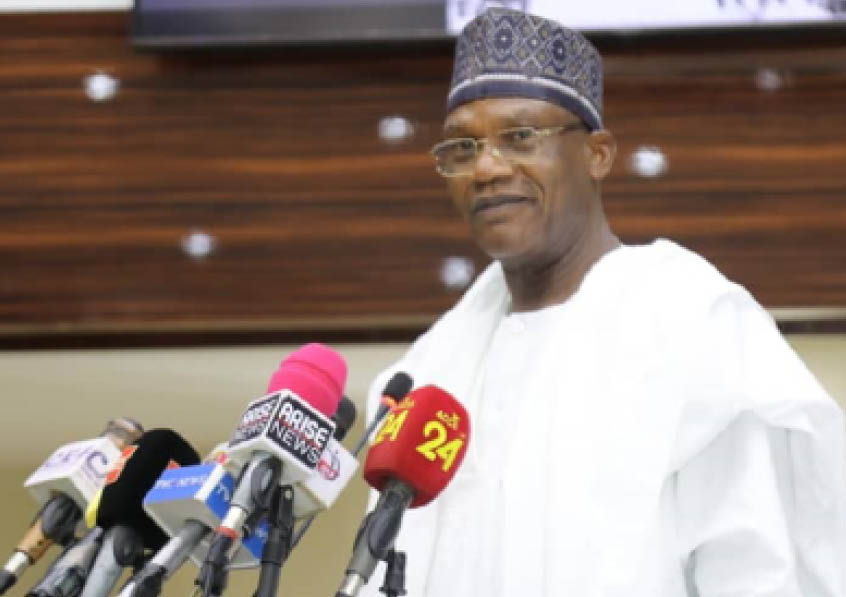The Minister of Education, Prof Tahir Mamman, recently decried the rate of underage entry into universities and other tertiary institutions and hinted plans towards reviewing and pegging the minimum entry age into the institutions in the country at 18.
Recall that the Registrar of Joint Admissions and Matriculation Board (JAMB), Prof Ishaq Oloyede, cautioned parents against enrolling minors for the Unified Tertiary Matriculation Examination (UTME), saying they should be allowed to mature before registering them.
Oloyede said, “The law today is that you must spend six years before primary school, six years in primary school and six years in secondary school. By that time you are 18.”
Although 18 has been the required age to gain admission into university over the years, currently, 14 to 17-year-old children are gaining admission, especially into private universities, which leaves one to wonder if the entrance age does not matter anymore.
Native doctor, 2 others arrested over killing of student in Edo
Gbong Gwom Jos worries over killings as farming season begins
Prof Mamman, while monitoring the just concluded UTME in Abuja, said, “We noticed the ages of those who have applied to go to the university. Some of them are really too young. We are going to look at it because they are too young to understand what university education is all about.
“That’s the stage when students migrate from a controlled environment where they are in charge of their own affairs. So, if they are too young, they won’t be able to manage properly. That accounts for some of the problems we are seeing in the universities.
“We are going to look at that. 18 is the entry age for university, but you will see students, 15 and 16, going to the examination. It is not good for us. Parents should be encouraged not to push their wards or children too much.”
The Chairman of the Senate Committee on Tertiary Institutions and TETFund, Muntari Dandutse, backed the decision of the minister, saying the upper chamber of the National Assembly might soon amend the law on the minimum entry age into universities and other tertiary institutions in the country.
Senator Dandutse said the move would ensure that minors did not find their way to university.
Also speaking, a member of the committee, Senator Sunday Karimi, said the need to boost access to education did not rule out pegging the minimum admission age at 18.
Karimi said, “Everybody should have access to education. Just because you are 40 or 50 doesn’t mean you cannot enter university; it is not a barrier, but there is also a minimum. You cannot be 12, 13 or 14 and enter university.
“What the minister said yesterday is that you have to be 18, and we are not against that, because before you can enter primary school, you have to be six, and before you enter secondary school, you have to be 12. So, before you enter university, you have to be 18.”
Meanwhile, the underage entrance to university issue was minimal or absent when a child had to start school at the age of six and go through the 6-3-3-4 concept of education in which the child spent six years at the primary level, three years at the junior secondary school level, another three years at the senior secondary level and four years at the tertiary level. Such a child will likely finish secondary school at the age of 17, and by the time the child applies to be in the university, he or she would have clocked 18.
However, with the introduction of Early Childhood Education, the concept now translates to 1-6-3-3-4. Children start school from zero year and before you know it, many finish secondary school at the age of 14 or 15.
However, the decision has raised concerns among candidates and parents whose wards are not 18 and have written the UTME.
A parent, Eucharia Azubuike, said pegging the entrance age at 18 was not a bad idea because many parents, guardians and school proprietors rushed their children through elementary and secondary schools to enable them to finish academics very early in life.
She said, “Many of these children finish secondary school without any iota of maturity, and when they get to the university, so many usually fall into trouble because they lack the maturity to deal with certain issues, and a lot also graduate just with academic knowledge and no capacity to make meaningful decisions.”
While blaming the early child education system which many parents have embraced to ease them of being with the kids, Eucharia said some parents now sent their few-month-old babies to crèche and that before one knew they were through with primary school.
She said those who had written the UTME should be allowed to go, but that from next year JAMB should stop them at the point of registration.
She advised that when a child finished secondary school at the age of 16, the government and parents should provide an avenue for the child to learn a skill, trade or pre-varsity education before they were of age to go to university, noting that it would give them added advantage and keep them on track.
Also, the Team Lead of Mother’s Love Initiative, Hanatu Enwemadu, commended the federal government on the transformative initiative to set the minimum university entry age at 18, saying it aligned with their commitment to nurturing well-prepared and mentally-resilient youths.
She told Daily Trust that they had been carrying out an advocacy against admitting underage children into school.
She said, “We’ve long advocated for age-appropriate education, addressing the challenges of the hurried child phenomenon. This landmark decision reflects our shared goal of empowering Nigerian youths with the maturity and readiness essential for success in higher education and beyond.
“The early years of a child’s life are very important for their health and development. Hurrying children during this stage can have adverse effects.”
While emphasising that it’s crucial to support the growth of Nigerian children, as studies had highlighted the importance of implementing policies to facilitate such, Hanatu said, “Interestingly, when these children go abroad, they’re placed in classes based on their age. There’s a pressing need for more awareness, as some rush ahead without fully grasping the situation.”
However, Mr Kelvin Emelie said the news had unsettled his 16-year-old son who sat for the 2024 UTME.
He said the son asked him, “Daddy, does that mean I will not be going to university and that I have to wait for another two years to be qualified to go to school?’’
He said that although he was not faulting the pronouncement; the age decision would affect the children and won’t be fair to them.
He said, “You cannot ask a child who has finished senior secondary school and obtained a good result and gets the required cut off mark and qualifies to go to the university to stay at home for another year or two because of age issue; that will break the child and affect his mental health and possibly performance and studies in future.”
He blamed the system and the government for bringing in policies which affected the system, saying, “When they insisted that children should start school early through crèche and early child education, they should have known that when they start early they will finish early too. They cannot bring confusion in the system now in the name of reviewing the age limit.”
While agreeing that some of the children who were less than 18 might not be able to understand how to live without their guardians or parents, he advised the government to make the law flexible such that parents should make the decision.
For Samuel Adikwu, the policy to peg the minimum age for admission into the university at 18 is “pure nonsense”.
Adikwu said, “So, someone that finishes secondary school before 18 should wait at home until he or she turns 18. What kind of stupid idea is that! I finished secondary school before 16, and these days some even finish before 15.”
While asking for the rationale behind the policy, he said, “Do they consider the difficulties in getting admission, strikes, course duration, NYSC and age limit in securing a job afterwards and other circumstances?”
An educationist, Ojonugwa Sule, said the decision was not the way to go as the same government had insisted on early child education.
Sule said, “You cannot ask a child who has finished school under the system you put in place to stay at home because he is underage. Age should not be a barrier; instead, there should be, maybe a post-secondary class of maybe one year for such children, so that they will learn and be exposed to what to face in the university.”
He said the government should also consider the fact that putting an age limit in going for NYSC and getting a job was a disadvantage for so many people in the country.
He further said, “You peg the work limit in many organisations at 25 years, and many have been automatically cut off because they are above 52 years. You have to also consider that there is no guarantee of finishing university in four years because of the usual disruptions in public universities. Parents want their children to finish early in order not to be cut off.”
He advised that the government reconsider the decision or that they had to review other policies as well.
The Chairman of Voyage International School, Abuja, Yussuff Oriyomi, agreed with the age limit of 18 gaining admission into the university.
He said, “You need a certain level of maturity at the university level. It’s only in Nigerian universities that you find so many unready students.”
While noting that some children were matured for university education even at the age of 16, he said, “When you make a rule, you consider what is generally applicable.”
Oriyomi further said, “If they are not yet 18, we can encourage them to learn a skill or a vocation in the interlude period before age 18 and before their university education.
“There are so many things not taught in secondary school but that are useful in life: AI, coding, digital marketing, plumbing, etc. These are some of the skills children can learn before proceeding to university.
“So, if you are not up to 17, you should not be allowed to write UTME. This will go a long way. If you are not up to 16, you cannot sit for WAEC and NECO, this will equally help.
The government needs to deploy biometrics and track the effectiveness of the policy and continue to make improvements.”

 Join Daily Trust WhatsApp Community For Quick Access To News and Happenings Around You.
Join Daily Trust WhatsApp Community For Quick Access To News and Happenings Around You.


